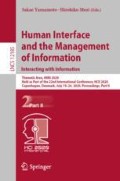Abstract
Targeting a community as a system that cannot exist without people’s self-motivated involvement, we propose a mechanism through which the selfish behavior of people elicits awareness in their relationship with others, eventually generating an altruistic effect. In this research, we conduct a field experiment in which people utilize the mechanism spontaneously and repeatedly to elucidate and demonstrate that wellbeing in a community is viable. Here, wellbeing indicates that an individual’s rights and self-actualization can be secured, and they are physically, mentally, and sociologically in good conditions. Accordingly, we introduce the basic concept of relationality and relationality assets (RAs). To make people aware of the significance and meaning of relationality in a community, we establish that relationality should be considered as an asset in the social and economic values, expected to provide some utility to a community in the future. This indicates that RAs are valuable for quantizing and visualizing the relationality naturally generated by people through interactions between “Hito,” “Mono,” and “Koto” while living in a community. In this paper, we discuss the significance and potential of the research concept and research issues to achieve the above goal.
Access this chapter
Tax calculation will be finalised at checkout
Purchases are for personal use only
References
Shioya, R., Kimura, K., Shiozu, Y., Yonezaki, K., Tanev, I., Shimoahra, K.: Regional revitalization through finding potential hazards by object detection. In: Proceedings of SICE Annual Conference 2019, pp. 498–502 (2019)
Shimohara, K.: System for visualizing and managing relationality assets as trust enabling rebuilding of communities. In: Proceedings of the 4th Asia-Pacific World Congress on Computer Science and Engineering, pp. 88–92 (2017)
Ogita, K., Kimura, K., Shiozu, Y., Yonezaki, K., Tanev, I., Shimohara, K.: Simulation for visualizing relationality assets in local community. In: Proceedings of SICE Annual Conference 2018, pp. 670–673 (2018)
Kimura, K., Shiozu, Y., Tanev, I., Shimohara, K.: Relationality design for local community as system of systems. In: SICE Annual Conference (SICE 2015), pp. 490–493 (2015)
Shiozu, Y., Kimura, K., Shimohara, K.: A Measurement of the local community activity by the place. In: SICE Annual Conference (SICE 2015), pp. 494–499 (2015)
Shimohara, K.: Interpenetrative model of system boarders based on human activities – weaving trees with rhizome. J. Soc. Instrum. Control Eng. 55(8), 680–685 (2016)
Shiozu, Y., Kimura, K., Shimohara, K.: The temporal analysis of networks for community activity. In: Yamamoto, S. (ed.) HIMI 2016. LNCS, vol. 9735, pp. 63–71. Springer, Cham (2016). https://doi.org/10.1007/978-3-319-40397-7_7
Kimura, K., Shiozu, Y., Tanev, I., Shimohara, K.: A leader and media spot estimation method using location information. In: Yamamoto, S. (ed.) HIMI 2016. LNCS, vol. 9735, pp. 550–559. Springer, Cham (2016). https://doi.org/10.1007/978-3-319-40397-7_53
Kimura, K., Shiozu, Y., Tanev, I., Shimohara, K.: Visualization of relationship between residents using passing-each-other data toward resident-centered vitalization of local community. In: Proceedings of the Second International Conference on Electronics and software Science (ICESS2016), pp. 122–127 (2016)
Shioya, R., Tnaka, M., Yonezaki, K., Shiozu, Y., Tanev, I., Shimohara, K.: Self-motivated information sharing in communities for promoting regional revitalization. IEEE Computer Science and Data Engineering, PID: 97, 4 p. (2019)
Takahara, M., Nakamura, K., Huang, F., Tanev, I., Shimohara, K.: Nursing care support system for caregiver and older adults. In: Yamamoto, S., Mori, H. (eds.) HCII 2019. LNCS, vol. 11570, pp. 568–577. Springer, Cham (2019). https://doi.org/10.1007/978-3-030-22649-7_46
Shiozu, Y., Kimura, K., Shimohara, K., Yonezaki, K.: Case study about the visualization of GPS data as the nudge and place attachment. In: Proceedings of SICE Annual Conference 2018, pp. 666–669 (2018)
Shiozu, Y., Kimura, K., Shioya, R., Shimohara, K., Yonezaki, K.: Relationship between difference of motivation and behavior change caused by visualization. In: Yamamoto, S., Mori, H. (eds.) HCII 2019. LNCS, vol. 11569, pp. 489–499. Springer, Cham (2019). https://doi.org/10.1007/978-3-030-22660-2_36
Yonezaki, K., Ogita, K., Kimura, K., Shiozu, Y., Shioya, R., Shimohara, K.: On the relationality assets and gift-and-circulation model in community problem. In: Yamamoto, S., Mori, H. (eds.) HCII 2019. LNCS, vol. 11569, pp. 638–647. Springer, Cham (2019). https://doi.org/10.1007/978-3-030-22660-2_47
Tanaka, M., Shioya, R., Yonezaki, K., Shiozu, Y., Tanev, I., Shimohara, K.: Multi-agent simulation of relationality assets to enable community vitalization. IEEE Computer Science and Data Engineering, PID: 80, 6 p. (2019)
Trivers, R.L.: The evolution of reciprocal altruism. Q. Rev. Biol. 46(1), 35–57 (1971)
Buss, D.M. (ed.): The Handbook of Evolutionary Psychology, p. 1056. Wiley, Hoboken (2005)
Maeshiro, T.: Framework based on relationship to describe non-hierarchical, boundaryless and multi-perspective phenomena. SICE J. Control Meas. Syst. Integr. 11(5), 381–389 (2018)
Shimohara, K.: Boundary and relationality perspective systems approach toward designing system of systems. In: Proceedings of SICE Annual Conference 2019, pp. 491–494 (2019)
Shimohara, K.: Boundary and relationality in systems design: toward designing system of systems. IEEE Computer Science and Data Engineering, PID: 83, 6 p. (2019)
Acknowledgment
The author wishes to thank Ryo Shioya and Mizuki Tanaka (post-graduation students) for their contribution, and Prof. Yurika Shiozu, Kyoto Sangyo University, Prof. Kazuhiko Yonezaki, Taisho University, and Prof. Ivan Tanev, Doshisha University, for their help as research collaborators.
Author information
Authors and Affiliations
Corresponding author
Editor information
Editors and Affiliations
Rights and permissions
Copyright information
© 2020 Springer Nature Switzerland AG
About this paper
Cite this paper
Shimohara, K. (2020). System Design of Community Toward Wellbeing. In: Yamamoto, S., Mori, H. (eds) Human Interface and the Management of Information. Interacting with Information. HCII 2020. Lecture Notes in Computer Science(), vol 12185. Springer, Cham. https://doi.org/10.1007/978-3-030-50017-7_18
Download citation
DOI: https://doi.org/10.1007/978-3-030-50017-7_18
Published:
Publisher Name: Springer, Cham
Print ISBN: 978-3-030-50016-0
Online ISBN: 978-3-030-50017-7
eBook Packages: Computer ScienceComputer Science (R0)

